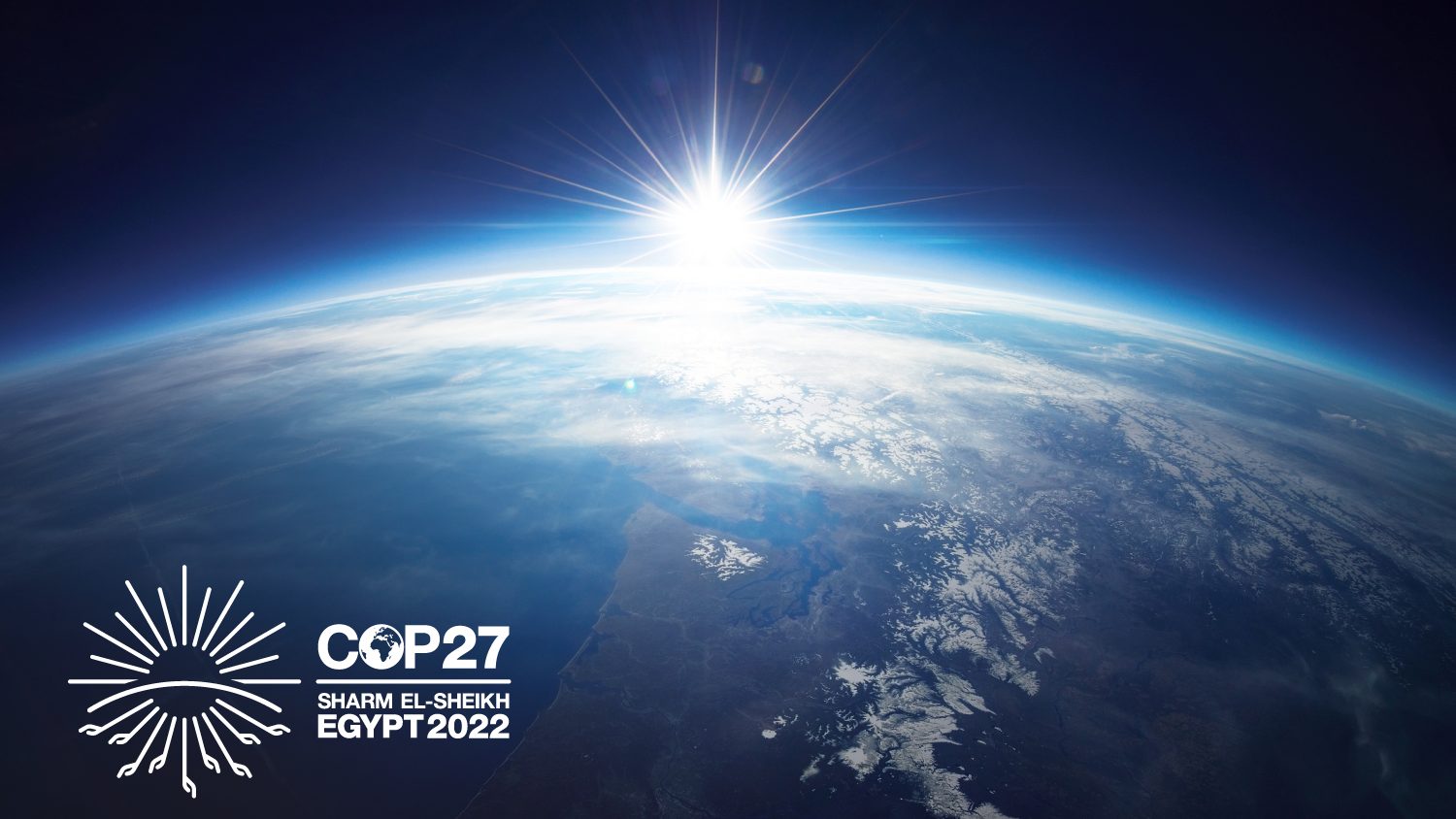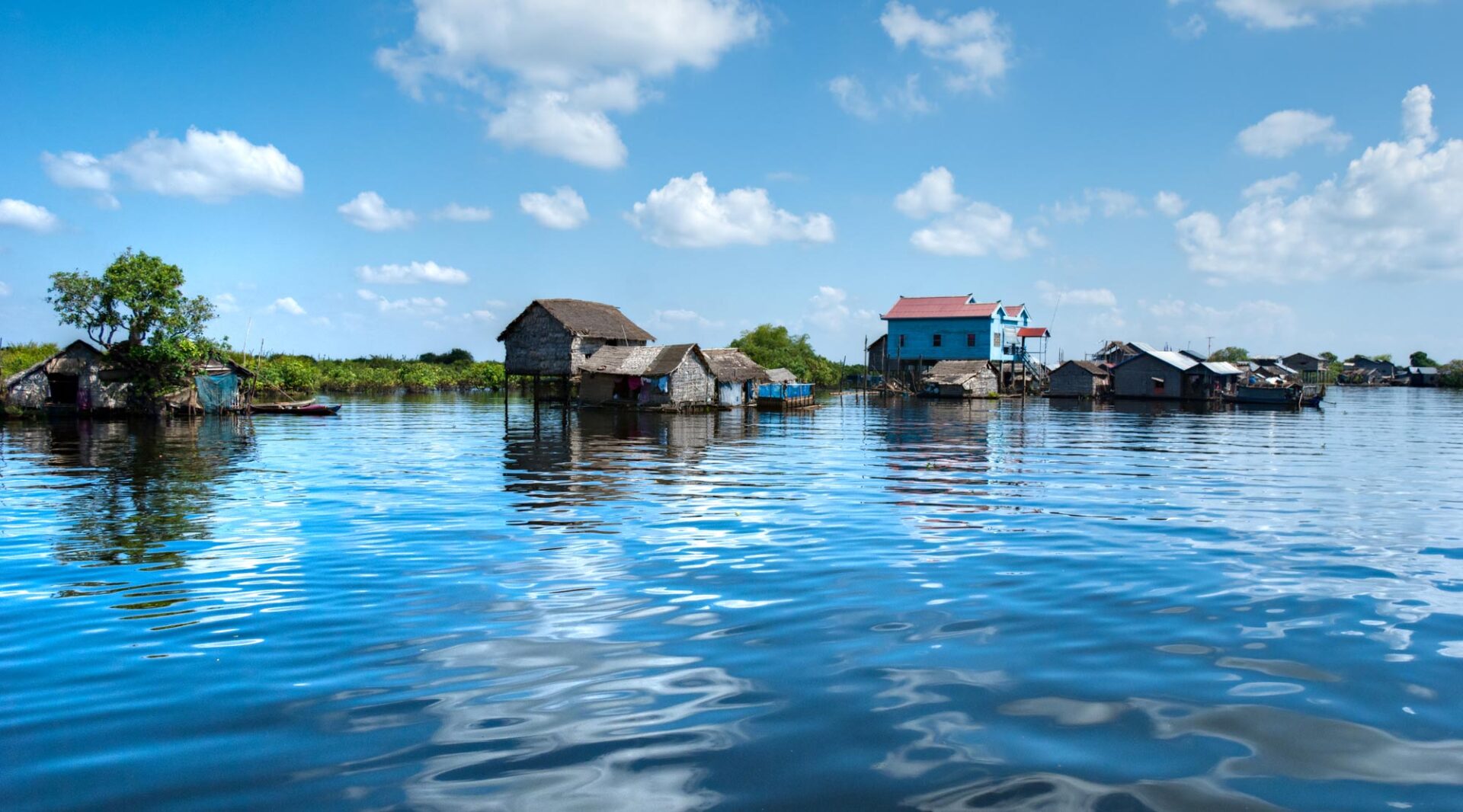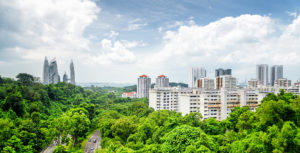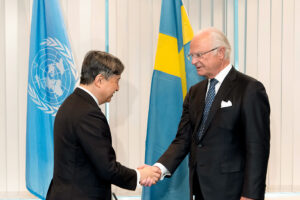On the road to a water revolution
The climate meeting COP27 has already meant a step forward in the recognition of the role of water in climate action. But this is only in the beginning. Next year, a United Nations conference and a global commission hope to revolutionize how water is valued and managed.
Global leaders don’t understand the gravity of the water crisis and are not equipped to tackle it, according to Dr Aromar Revi. As a lead expert in the Global Commission on the Economics of Water he is attending COP27 to convince governments and negotiators that they need to place water at the core of all climate policies.
“Today’s systems for water governance need a complete transformation since they are not suited for a world of radical environmental change,” Dr Aromar Revi said, expressing concern that water management could otherwise become overwhelmed and break down. Speaking at a press briefing in the COP27 Water Pavilion, he also warned that climate progress will be derailed if decision-makers fail to consider the connection between water and climate.
“The IPCC is telling us that all the big transitions are constrained by water, whether it’s the energy transition, the urban infrastructure transition, or ecosystems. In some sense water is the connecting element across the climate space, and across the sustainable development space,” Revi said.
Follow SIWI to COP27
To share new knowledge about water and climate, SIWI will be taking active part in the global climate conference COP27 between 6 and 18 November. Join our programme online to learn about a promising new generation of climate solutions.
SIWI at COP“Water is the connecting element across the climate space, and across the sustainable development space.”
He sees water as the third fundamental challenge for humanity, on par with climate change and biodiversity loss but much less understood. The Global Commission on the Economics of Water was launched in May 2022 to change this. It is meant to complete the sustainability trilogy initiated in 2006 with the Stern Review of climate economics and continued in 2021 with the Dasgupta report which transformed our understanding of biodiversity. “With the report we hope to revolutionize the perception of water and how it connects sustainable development, climate, biodiversity and, of course, the economic system and the financial system as a whole,” Aromar Revi explained.
The commission consists of 17 top experts and is led by Professor Mariana Mazzucato, WTO Director-General Ngozi Okonjo-Iweala, Professor Johan Rockström and Singapore Senior Minister Tharman Shanmugaratnam. Aromar Revi is lead expert together with Professor Joyeeta Gupta and Professor Quentin Grafton.
Both Professor Mazzucato and Professor Gupta were invited to deliver keynote addresses at World Water Week in August, where they described some of the challenges ahead. Joyeeta Gupta, speaking in the Opening plenary, explained how ill-advised trade regimes and obsolete property laws often make water governance unnecessarily difficult for countries in the Global South.
On a more hopeful note, Mariana Mazzucato, gave examples of how societal innovations thinking can be used to address the water and climate crisis. She is one of the world’s most influential experts on systemic innovation and champions a missions-thinking approach to complex challenges that require tremendous levels of coordination and financing over many years. The commission has already announced that these concepts will be guiding its report, which will be developed over the course of two years.
The first part is to be presented in March next year, at the United Nations 2023 Water Conference. The idea of a commission comes from the Government of the Netherlands, which also co-chairs the conference, together with Tajikistan.
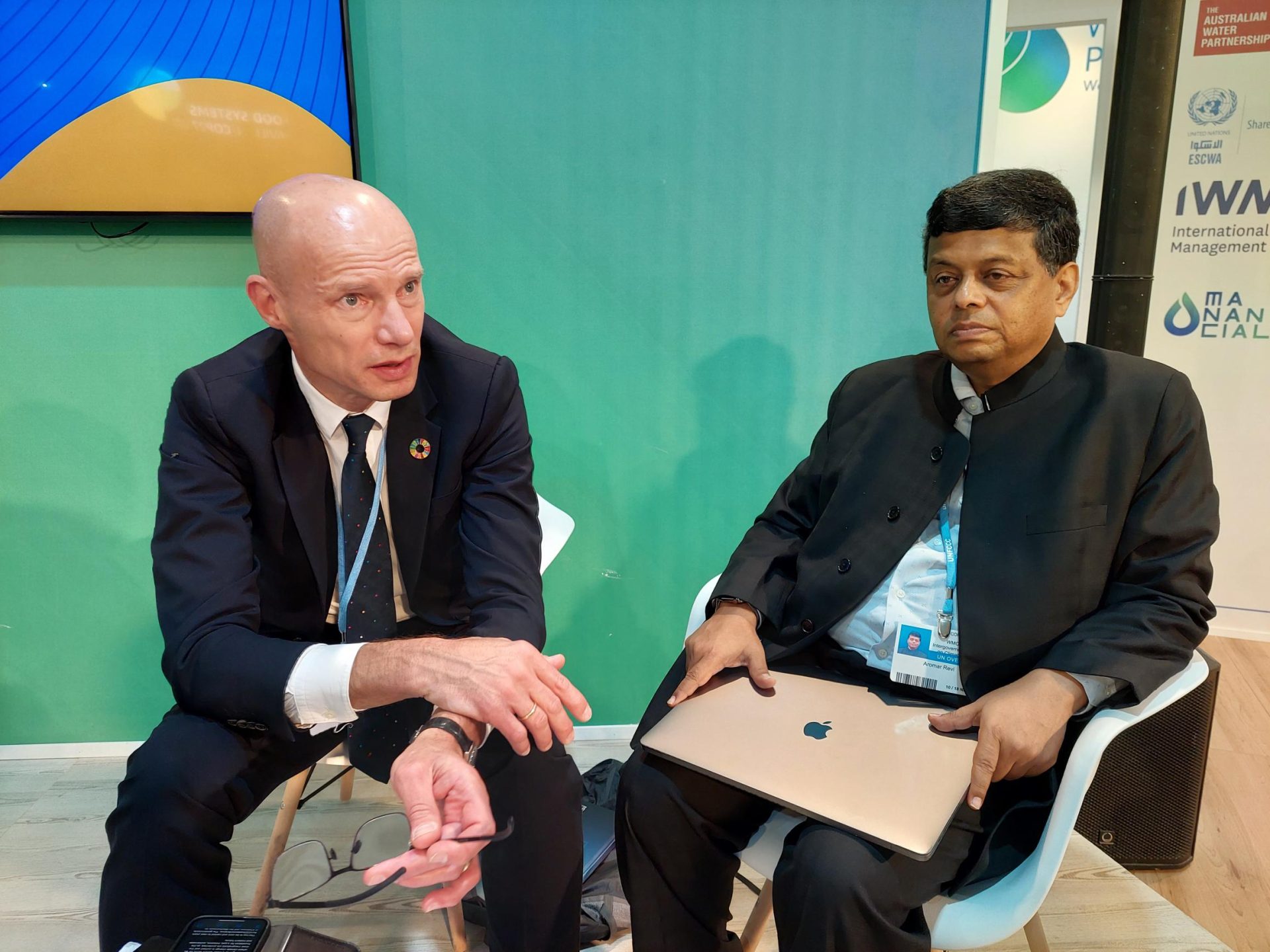
“Water plays a crucial role in both climate and biodiversity, so after the Stern and Dasgupta reports we felt that the logical third step would be to look at the economics of water. And it is quite a body of knowledge that we have brought together,” said Henk Ovink, Special Envoy for International Water Affairs for the Kingdom of the Netherlands.
He hopes that the report will influence the conference so that countries, and international institutions, realize what they would gain from improving the management of water. “Water is the forgotten gem. It can be the lever for sustainable development if we get the incentives right. Investing in water can make every sustainable development goal flourish and it drives climate mitigation, as well as adaptation. But right now, we are on a disastrous course, which we need to change.”
“Investing in water can make every sustainable development goal flourish and it drives climate mitigation, as well as adaptation.”
Viewed this way, the importance of the UN 2023 Water Conference is not just to track progress on SDG 6, the sustainable development goal speaking directly about water, but to change how water is perceived. Step one is for governments to understand how fast the water cycle is now changing, due to global warming, changes in land use, over consumption and poor management. Decision-makers need to assess what this will mean in their own local context, where water may be increasingly scarce.
What this could look like was described by the Intergovernmental Panel on Climate Change in a 2018 special report comparing the impacts of 1.5-degree temperature rise compared to a 2-degree scenario. Aromar Revi was one of the lead authors of the study which found that the incidence of droughts, flooding and water stress will be significantly higher if global temperatures hit an average 2-degree increase over pre-industrial levels, compared to a 1.5-degree rise. The proportion of the global population exposed to water stress could for example be 50 percent higher in a 2-degree scenario.
“We will likely experience a significant 1.5 overshoot and that will have very serious consequences. The changes to the global hydrological cycle will be dramatic for water, climate and biodiversity. Not only are we living in the Anthropocene, but this is the first year that science is showing us that we have reached the planetary boundary for water. This is a very serious responsibility for us,” Revi said.
Henk Ovink hopes that this will serve as a wake-up call for governments ahead of the UN 2023 Water Conference. “Around the world, infrastructure and governance have been designed on the premises that there is water. We have created systems that are good at distribution but not at managing water. But now we need to take care of the roots of our water, the aquifers, lakes, rivers, glaciers. To do so we need to set the politics and economics of water right,” Ovink said.
